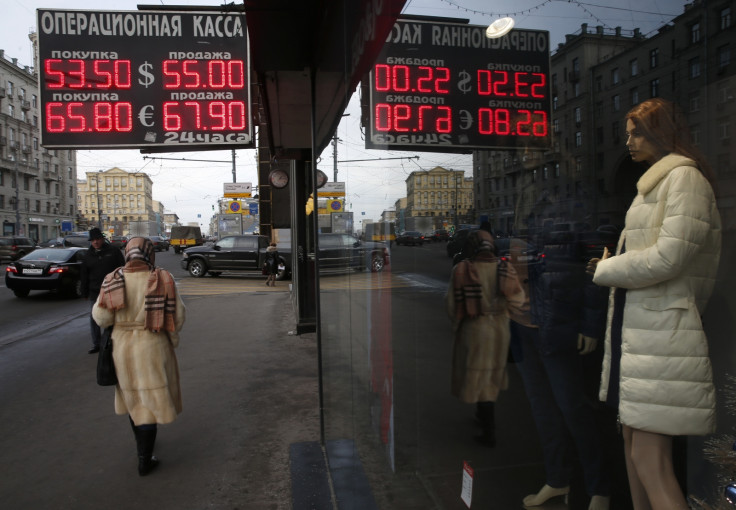Russia's central bank intervenes in currency market as rouble slide continues

The Russian central bank has confirmed that it stepped in to prop up the rouble last week, despite making steps to free-float the currency in November.
The Bank of Russia spent $4.53bn on foreign currency last week in an effort to stop the rouble haemorrhaging value. The intervention triggered an immediate recovery – but that was short-lived. It has twice this week fallen close to record lows, after further crashes in the oil market.
This morning the rouble was down 0.9% against the dollar, having fallen by 2.2% yesterday (8 December). One dollar will now buy you 55.25 roubles.
It means the bank has spent over $70bn on propping the currency up this year. Despite this, it has shed around 40% of its value against the dollar over the course of 2014. Analysts estimate that a further $300m was spent on foreign currency yesterday.
The rouble has been pummelled by the slide in oil prices. Crude oil prices reached five-year lows this week, as oversupply continues to depress the market. Forecasters expect the prices to remain low throughout 2016, with Morgan Stanley revising its 2015 average price per barrel down to $70 from its previous reading of $98.
This has spelled doom for Russia's economy. Oil sales account for 70% of Russia's exports and the plunge in prices has had a catastrophic impact on the country's economy. It's estimated that the drop in oil prices since July will slash $100bn from Russia's annual exports volume.
It has led to a host of organisations revising down their forecasts for Russia's economy. Even its own Economic Ministry admitted that the country is likely to suffer recession through 2015, last week predicting a 0.8% contraction next year, a revision of its earlier prediction of 1.2% growth.
Investment banks have also been lining up to reduce their expectations. Morgan Stanley is now forecasting a 1.7% contraction, Deutsche Bank is calling it at 0.9% with Citibank predicting a shrinkage of 1%.
Analysts have called for the Bank of Russia to increase interest rates significantly, with Timothy Ash of Standard Bank equating its efforts to date to "using a pea-shooter".
"It will need to hike rates significantly to defend the rouble, or let the rouble further weaken," he wrote.
As well as oil prices, the Russian economy has been routed by western sanctions, currency speculation and capital flight.
Russia's President Vladimir Putin warned last week that currency speculators would be punished by his government. In his annual state of the nation address at the Kremlin's St George Hall, he said: "You know the central bank has floated the rouble, but that doesn't mean the central bank no longer intervenes.
"We have asked the central bank to take measures to make sure that speculators can no longer take advantage. We know who those people are, and we have the means to rein them in. It's time to use these instruments.
"The rouble of course constitutes upward pressure on inflation. We should take measures to keep the situation with food prices under control. But the weak rouble also makes our companies more competitive, and we need to take advantage through import substitution."
© Copyright IBTimes 2025. All rights reserved.






















